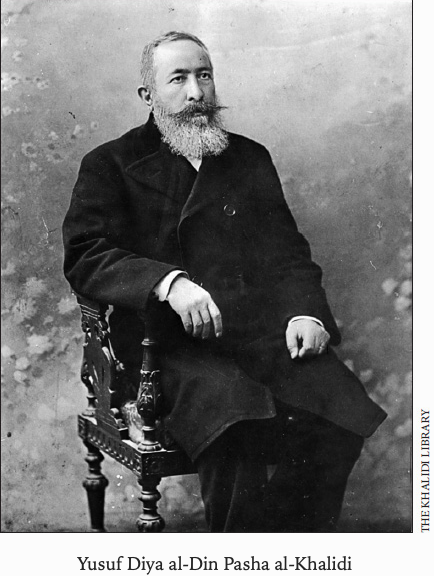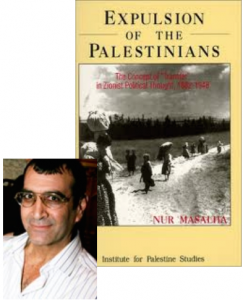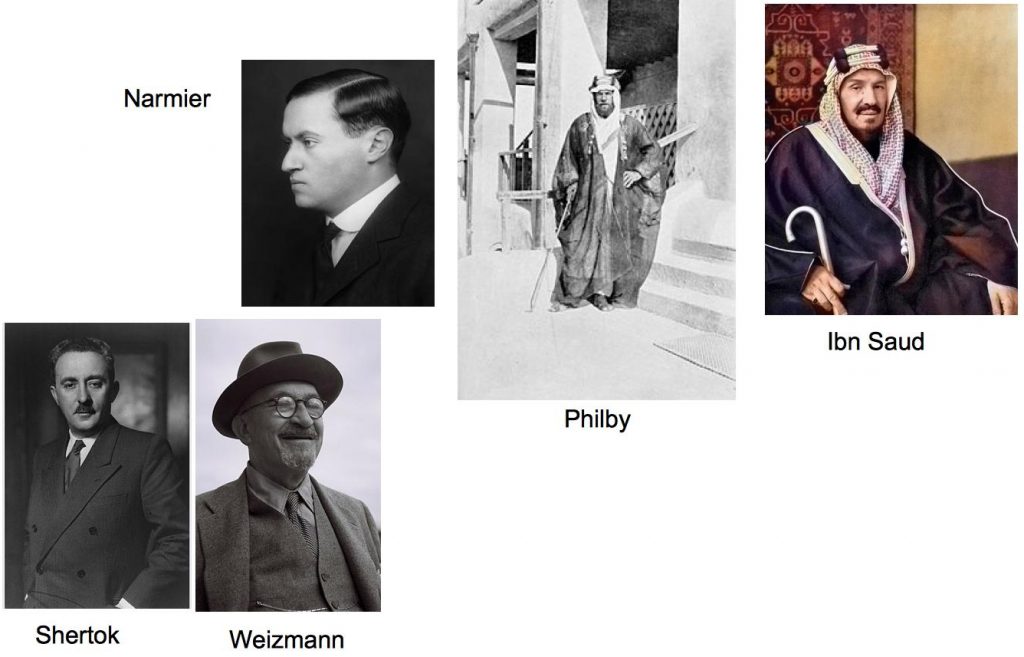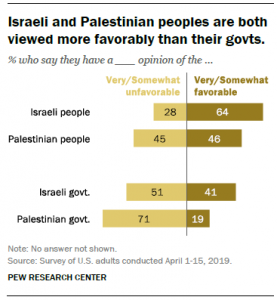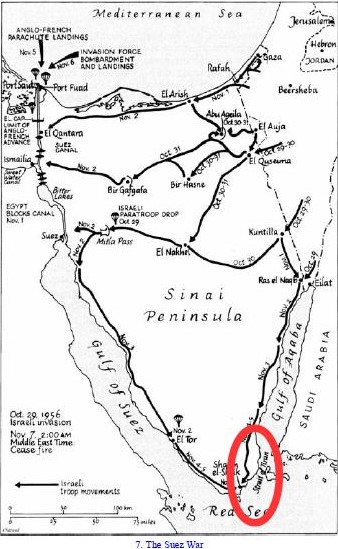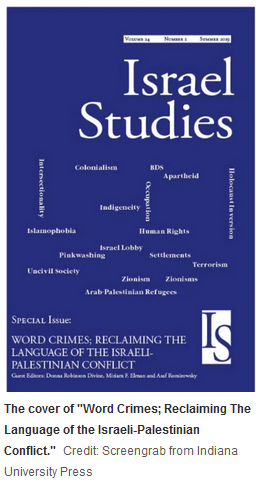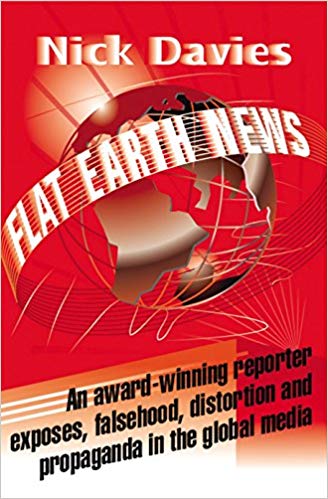It’s hard to turn one’s mind to biblical studies at this time. Here is a copy of a statement that can be found on a Keough School of Global Affairs site at the University of Notre Dame. The scholars warn that the record of history indicates that we are witnessing evidence unfolding that much, much worse is still to come in Israel’s “war” on Gaza and with the coinciding actions in the West Bank and towards Palestinian citizens inside Israel. An introductory statement explains the purpose of the statement:
Here is Raz Segal’s Introduction to the Statement of the scholars:
 Dr. Raz Segal is Associate Professor of Holocaust and Genocide Studies and Endowed Professor in the Study of Modern Genocide at Stockton University. Dr. Segal has held a Harry Frank Guggenheim Fellowship, a Fulbright Fellowship, and was recently a Senior Fellow at the Vienna Wiesenthal Institute for Holocaust Studies (March-July 2023). His publications include Genocide in the Carpathians: War, Social Breakdown, and Mass Violence, 1914-1945 (2016); Days of Ruin: The Jews of Munkács during the Holocaust (2013); and he was guest editor of the Hebrew-language special issue on Genocide: Mass Violence and Cultural Erasure of Zmanim: A Historical Quarterly (2018). In addition to scholarly publications, Dr. Segal has published op-eds, book reviews, and larger articles on genocide, state violence, and memory politics in Hebrew, English, and German in The Guardian, LA Times, The Nation, Jewish Currents, Haaretz, +972 Magazine, and Berliner Zeitung, and he has appeared on Democracy Now! and ABC News.
Dr. Raz Segal is Associate Professor of Holocaust and Genocide Studies and Endowed Professor in the Study of Modern Genocide at Stockton University. Dr. Segal has held a Harry Frank Guggenheim Fellowship, a Fulbright Fellowship, and was recently a Senior Fellow at the Vienna Wiesenthal Institute for Holocaust Studies (March-July 2023). His publications include Genocide in the Carpathians: War, Social Breakdown, and Mass Violence, 1914-1945 (2016); Days of Ruin: The Jews of Munkács during the Holocaust (2013); and he was guest editor of the Hebrew-language special issue on Genocide: Mass Violence and Cultural Erasure of Zmanim: A Historical Quarterly (2018). In addition to scholarly publications, Dr. Segal has published op-eds, book reviews, and larger articles on genocide, state violence, and memory politics in Hebrew, English, and German in The Guardian, LA Times, The Nation, Jewish Currents, Haaretz, +972 Magazine, and Berliner Zeitung, and he has appeared on Democracy Now! and ABC News.In the following statement, over 55 scholars of the Holocaust, genocide, and mass violence deplore the atrocity crimes against civilians committed by Hamas and Islamic Jihad on 7 October and by Israeli forces since then. The starvation, mass killing, and forced displacement of Palestinian civilians in Gaza is ongoing, raising the question of genocide, especially in view of the intentions expressed by Israeli leaders. Israeli President Isaac Herzog used particularly loaded language in an interview on MSNBC just a few days ago, on 5 December: “This war is a war that is not only between Israel and Hamas. It’s a war that is intended, really, truly, to save western civilization. … We are attacked by [a] Jihadist network, an empire of evil. … and this empire wants to conquer the entire Middle East, and if it weren’t for us, Europe would be next, and the United States follows.” Herzog builds on Israeli Prime Minister Benjamin Netanyahu’s association of Israel’s attack on Gaza with the Biblical evil of Amalek, but he places it on a modern scale as the last stand against global apocalypse and the demise of “western civilization.” Both Herzog and Netanyahu are secular Jews. Their use of religious language and symbolism in this case reflects a dangerous intersection in the case of Israel of the exclusionary modern nation state with a settler colonial project in a place infused with multiple religious histories and meanings. The scholars who have signed the statement are signaling their alarm about the mass violence underway in Gaza and the inflammatory language that threatens to escalate it further. They call for urgent action to stop Israel’s attack on Gaza and to work towards a future that will guarantee the equality, freedom, dignity, and security of all the people who live between the Jordan River and the Mediterranean Sea.
RAZ SEGAL
December 9, 2023
Statement of Scholars in Holocaust and Genocide Studies on Mass Violence in Israel and Palestine since 7 October
https://contendingmodernities.nd.edu/global-currents/statement-of-scholars-7-october/
December 9, 2023
We, scholars of the Holocaust, genocide, and mass violence, feel compelled to warn of the danger of genocide in Israel’s attack on Gaza. We also note that, should the Israeli attack continue and escalate, Palestinians under Israeli military occupation in the West Bank and East Jerusalem and Palestinian citizens of Israel face grave danger as well.
We are deeply saddened and concerned by the mass murder of over 1,200 Israelis and migrant workers by Hamas, the Islamic Jihad, and others on 7 October, with more than 830 civilians among them. We also note the evidence of gender-based and sexual violence during the attack, the wounding of thousands of Israelis, the destruction of Israeli kibbutzim and towns, and the abduction of more than 240 hostages into the Gaza Strip. These acts constitute war crimes and crimes against humanity. We recognize that violence in Israel and Palestine did not begin on 7 October. If we are to try to understand the mass murder of 7 October, we should place it within the context of Israeli settler colonialism, Israeli military occupation violence against Palestinians since 1967, the sixteen-year siege on the Gaza Strip since 2007, and the rise to power in Israel in the last year of a government made up of politicians who speak proudly about Jewish supremacy and exclusionary nationalism. Explaining is not justifying, and this context in no way excuses the targeting of Israeli civilians and migrant workers by Palestinians on 7 October.
We are also deeply saddened and concerned by the Israeli attack on Gaza in response to the Hamas attack. Israel’s assault has caused death and destruction on an unprecedented level, according to a New York Times article on 26 November. In two months, the Israeli assault has killed more than 16,000 Palestinians (with thousands more buried under the rubble)—nearly half of them children and youth, with a Palestinian child killed every ten minutes on average before the ceasefire—and wounded over 40,000. Considering that the total population of Gaza stands at 2.3 million people, the killing rate so far is about 0.7 percent in less than two months. The killing rate of civilians in Russia’s bombing and invasion of Ukraine in the areas most affected by the violence are probably similar—but over a longer period of time. A number of experts have therefore described Israel’s attack on Gaza as the most intense and deadliest of its kind since World War II, but while Russia’s attack on Ukraine has, for very good reason, prompted western leaders to support the people under attack, the same western leaders now support the violence of the Israeli state rather than the Palestinians under attack.
Israel has also forcibly displaced more than 1.8 million Palestinians within the Gaza Strip, while destroying almost half of all buildings and leaving the northern part of the Strip an “uninhabitable moonscape.” Indeed, the Israeli army has dropped more than 25,000 tons of explosives on Gaza since 7 October, which is equivalent to two Hiroshima bombs, and according to Human Rights Watch, deployed white phosphorous bombs. It has systematically targeted hospitals, schools, universities, mosques, churches, bakeries, and agricultural fields. The state has also killed many essential professionals, including more than 220 healthcare workers, over 100 UN personnel, and dozens of journalists. The forced displacement has, furthermore, created in the southern part of the Strip severe overcrowding, with the risk of outbreak of infectious diseases, exacerbated by shortages of food, clean water, fuel, and medical supplies, due to Israel’s “total siege” measures since 7 October.
The unprecedented level of destruction and killing points to large-scale war crimes in Israel’s attack on Gaza. There is also evidence of a “widespread or systematic attack directed against any civilian population, with knowledge of the attack” that the Rome Statute of the International Criminal Court defines as a crime against humanity. Moreover, dozens of statements of Israeli leaders, ministers in the war cabinet, and senior army officers since 7 October—that is, people with command authority—suggest an “intent to destroy” Palestinians “as such,” in the language of the UN Convention on the Prevention and Punishment of the Crime of Genocide. The statements include depictions of all Palestinians in Gaza as responsible for the Hamas attack on 7 October and therefore legitimate military targets, as expressed by Israeli President Herzog on 13 October and by Israeli Prime Minister Netanyahu when he invoked, on 29 October, the Biblical story of the total destruction of Amalek by the Israelites, just as Israel began its ground invasion. Casting an entire civilian population as enemies marks the history of modern genocide, with the Armenian genocide (1915-1918) and the Rwanda genocide (1994) as well-known examples. The statements also include dehumanizing language, such as Israeli Defense Minister Yoav Gallant’s reference to “human animals” when he proclaimed “total siege” on Gaza on 9 October. The slippage between seeing Hamas as “human animals” to seeing all Palestinians in Gaza in this way is evident in what Israeli Coordinator of Government Activities in the Territories Maj. Gen. Ghassan Alian promised to people in Gaza the next day: “Hamas has turned into ISIS, and the residents of Gaza, instead of being appalled, are celebrating. … Human animals must be treated as such. There will be no electricity and no water [in Gaza], there will only be destruction. You wanted hell, you will get hell.”
These expressions of intent need to be understood also in relation to the widespread incitement to genocide in Israeli media since 7 October. Israeli journalist David Mizrachi Wertheim, for instance, wrote on social media on 7 October that “If all the captives are not returned immediately, then turn the [Gaza] Strip into a slaughterhouse. If a hair falls from their head – execute security prisoners. Violate all norms on the way to victory.” He also added, “we are facing human animals.” Four days later, another Israeli journalist, Roy Sharon, commented on social media “that if, in order to finally eliminate the military capabilities of Hamas, including Sinwar and Deif, we need a million bodies, then let there be a million bodies.” Annihilatory language now also appears in public spaces, such as banners on bridges in Tel Aviv that call “to annihilate Gaza” and explain that “the picture of triumph is 0 people in Gaza.” There are dozens of examples of incitement in Israeli media, which recalls the incitement to genocide in Rwanda as genocide was unfolding there in 1994.
This incitement points to the grave danger that Palestinians everywhere under Israeli rule now face. Israeli army and settler violence in the occupied West Bank and East Jerusalem, which has intensified markedly from the beginning of 2023, has entered a new stage of brutality after 7 October. Sixteen Palestinian communities—over a thousand people—have been forcibly displaced in their entirety, continuing the policy of “ethnic cleansing” in Area C that comprises 60 percent of the West Bank. Israeli soldiers and settlers have furthermore killed more than 220 Palestinians in the West Bank since 7 October, while arresting thousands. The violence against Palestinians also includes acts of torture.
Palestinian citizens of Israel—almost 2 million people—are also facing a state assault against them, with hundreds of arrests since 7 October for any expression of identification with Palestinians in Gaza. There is widespread intimidation and silencing of Palestinian students, faculty, and staff in Israeli universities, and the Israeli Police Commissioner Kobi Shabtai threatened to expel to Gaza Israeli Palestinians identifying with Palestinians in Gaza. These alarming developments and measures build on a view of Palestinian citizens of Israel as potential enemies that stretches back to the military rule imposed on the 156,000 Palestinians who survived the Nakba and remained within the territory that became Israel in 1948. This iteration of military rule lasted until 1966, but the image of Israeli Palestinians as a threat has persisted. In May 2021, as many Israeli Palestinians came out to protest an attack on Palestinians in East Jerusalem and another attack on Gaza, the Israeli police responded with massive repression and violence, arresting hundreds. The situation deteriorated quickly, as Jewish and Palestinian citizens clashed across Israel—in some places, as in Haifa, with Jewish citizens attacking Palestinian citizens on the streets and breaking into houses of Palestinian citizens. And now, Itamar Ben-Gvir, the far-right settler who serves as Israeli minister of national security, has put Israeli Palestinians in even more danger by the distribution of thousands of weapons to Israeli civilians who have formed hundreds of self-defense units after 7 October.
The escalating violence against Palestinians in the occupied West Bank and the exclusion and violence against Palestinian citizens of Israel are particularly worrying in the context of calls in Israel after 7 October for a “second Nakba.” The reference is to the massacres and “ethnic cleansing” of more than 750,000 Palestinians and the destruction of hundreds of villages and towns by Israeli forces in the 1948 war, when Israel was established. The language that member of the Israeli Knesset (parliament) Ariel Kallner from the ruling Likud party used in a social media post on 7 October is instructive: “Nakba to the enemy now. … Now, only one goal: Nakba! Nakba that will overshadow the Nakba of 1948. Nakba in Gaza and Nakba to whoever dares to join [them].” We know that genocide is a process, and we recognize that the stage is thus set for violence more severe than the Nakba and not spatially limited to Gaza.
Thus, the time for concerted action to prevent genocide is now. We call on governments to uphold their legal obligations under the UN Convention on the Prevention and Punishment of the Crime of Genocide to intervene and prevent genocide (Article 1) by (1) implementing an arms embargo on Israel; (2) working to end Israel’s military assault on Gaza; (3) pressuring the Israeli government to stop immediately the intensifying army and settler violence against Palestinians in the West Bank and East Jerusalem, which constitute clear violations of international law; (4) demanding the continued release of all hostages held in Gaza and all Palestinians imprisoned unlawfully in Israel, without charges or trial; (5) calling on the International Criminal Court to investigate and issue arrest warrants against all perpetrators of mass violence on 7 October and since then, both Palestinians and Israelis; and (6) initiating a political process in Israel and Palestine based on a truthful reckoning with Israeli mass violence against Palestinians since the 1948 Nakba and a future that will guarantee the equality, freedom, dignity, and security of all the people who live between the Jordan River and the Mediterranean Sea.
We also call on businesses and labor unions to ensure that they do not aid and abet Israeli mass violence, but rather follow the example of workers in Belgium transport unions who refused in late October to handle flights that ship arms to Israel.
Finally, we call on scholars, programs, centers, and institutes in Holocaust and Genocide Studies to take a clear stance against Israeli mass violence and join us in efforts to stop it and prevent its further escalation.
Mohamed Adhikari, University of Cape Town
Taner Akçam, Director, Armenian Genocide Research Program, The Promise Armenian Institute, UCLA
Ayhan Aktar, Professor of Sociology (Retired), Istanbul Bilgi University
Yassin Al Haj Saleh, Syrian Writer, Berlin
Sebouh David Aslanian, Professor of History and Richard Hovannisian Endowed Chair in Modern Armenian History, UCLA
Karyn Ball, Professor of English and Film Studies, University of Alberta, Edmonton
Haim Bresheeth-Žabner, Professorial Research Associate, School of Oriental and African Studies, University of London
Cathie Carmichael, Professor Emerita, School of History, University of East Anglia
Daniele Conversi, Professor, Department of Contemporary History, University of the Basque Country
Catherine Coquio, Professeure de littérature comparée à Université Paris Cité, France
John Cox, Associate Professor of History and Global Studies and Director of the Center for Holocaust, Genocide, and Human Rights Studies, University of North Carolina, Charlotte
Martin Crook, Senior Lecturer in Sociology, University of the West of England
Ann Curthoys, Honorary Professor, School of Humanities, The University of Sydney
Sarah K. Danielsson, Professor of History, Queensborough, CUNY
John Docker, Sydney, Australia
John Duncan, affiliated with the Institute of Commonwealth Studies, School of Advanced Study, University of London
Didier Fassin, Professor at the Collège de France and the Institute for Advanced Study
Joanne Smith Finley, Reader in Chinese Studies, Newcastle University, UK
Shannon Fyfe, Assistant Professor of Philosophy, George Mason University; Faculty Fellow, Institute for Philosophy and Public Policy
William Gallois, Professor of the Islamic Mediterranean, University of Exeter
Fatma Muge Gocek, Professor of Sociology, University of Michigan, Ann Arbor
Svenja Goltermann, Professor of Modern History, University of Zurich
Andrei Gómez-Suarez, Senior Research Fellow, Centre of Religion, Reconciliation and Peace, University of Winchester
Penny Green, Professor of Law and Globalisation and Director of the International State Crime Initiative, Queen Mary University of London
John-Paul Himka, Professor Emeritus, University of Alberta
Marianne Hirschberg, Professor, Faculty of Human Sciences, University of Kassel, Germany
Anna Holian, Associate Professor, School of Historical, Philosophical & Religious Studies, Arizona State University
Rachel Ibreck, Senior Lecturer in Politics and International Relations, Department of Politics and International Relations, Goldsmiths, University of London
Adam Jones, Professor, Political Science, University of British Columbia Okanagan
Rachel Killean, Senior Lecturer, University of Sydney Law School
Brian Klug, Hon. Fellow in Social Philosophy, Campion Hall, University of Oxford, and Hon. Fellow, Parkes Institute for the Study of Jewish/non-Jewish Relations, University of Southampton
Mark Levene, Emeritus Fellow, University of Southampton
Yosefa Loshitzky, Professorial Research Associate, School of Oriental and African Studies, University of London
Thomas MacManus, Senior Lecturer in State Crime, School of Law, Queen Mary University of London
Zachariah Mampilly, Professor, Baruch College and the Graduate Center, CUNY
Benjamin Meiches, Associate Professor of Security Studies and Conflict Resolution, University of Washington-Tacoma
Dirk Moses, Professor of International Relations, City College of New York, CUNY
Eva Nanopoulos, Senior Lecturer in Law, Queen Mary University of London
Jeffrey Ostler, Professor of History Emeritus, University of Oregon
Thomas Earl Porter, Professor of History, North Carolina A&T State University, Greensboro, NC
Colin Samson, Professor of Sociology, University of Essex
Victoria Sanford, Lehman Professor of Excellence, Lehman College and the Graduate Center, CUNY
Raz Segal, Associate Professor of Holocaust and Genocide Studies and Endowed Professor in the Study of Modern Genocide, Stockton University
Elyse Semerdjian, Robert Aram and Marianne Kaloosdian and Stephen and Marian Mugar Chair of Armenian Genocide Studies, Clark University
Martin Shaw, University of Sussex/Institut Barcelona d’Estudis Internacionals
Damien Short, Co-Director of the Human Rights Consortium and Professor of Human Rights and Environmental Justice at the School of Advanced Study, University of London
Ronald Grigor Suny, William H. Sewell, Jr. Distinguished University Professor Emeritus of History and Emeritus Professor of Political Science, University of Michigan
Adam Sutcliffe, Professor of European History, King’s College London
Barry Trachtenberg, Rubin Presidential Chair of Jewish History, Wake Forest University
Enzo Traverso, Professor in the Humanities, Cornell University
Jeremy Varon, Professor of History, The New School, New York
Johanna Ray Vollhardt, Associate Professor of Psychology, Clark University
Pauline Wakeham, Associate Professor, Department of English, Western University (Canada)
Keith David Watenpaugh, Professor and Director, Human Rights Studies, University of California, Davis
Andrew Woolford, Professor of Sociology and Criminology, University of Manitoba
Ran Zwigenberg, Associate Professor of Asian Studies, History, and Jewish Studies, Pennsylvania State University

I have read and studied about the Zionist movement and history of Palestine-Israel since the late nineteenth century in some depth and (I mean I have studied the history that has happened since that time, not that I have studied since that time the history of …) and can only hope against all hope that Noam Chomsky’s unfathomable optimism is valid when he says that at last there might be some hope for the salvation of the Palestinians — see from the 3 minutes 50 seconds his remarks on



